It’s been two years since our last AGM (the 2020 AGM falling victim to the pandemic) and during this time the Association has been a little less visible than normal as there have been no public meetings and only one newsletter.
However, our social media presence has continued as usual and behind the scenes HWJRA has continued to work with local authorities and stakeholders on various issues of concern to our local community.
HWJRA committee
I would like to record my thanks to the officers and committee who have served for the past two years.
The work is all voluntary and the time put in by officers and committee members is greatly appreciated – so thanks to Fiona Bruce, Jeffrey Fox, Andrew Jackson, Dawn Dunn, John Stephenson, Ian Cavanagh, Katherine Shipley and Cornelia Moosman.
Thanks to FOVALD’s Lending a Hand group
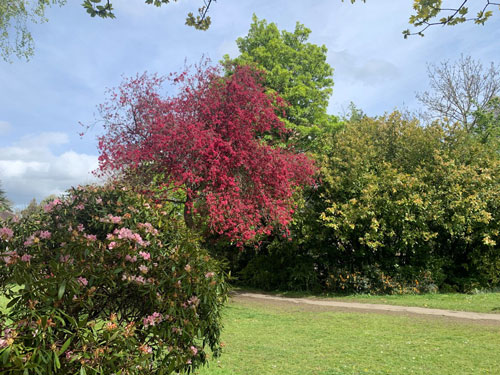
I would also like to record particular thanks to John Stephenson and the Lending A Hand team who work so hard to keep the area’s green spaces clean, tidy and thriving.
This time of year in High West Jesmond is a particular delight with all the blossom and flowers on display and the Lending A Hand team, in combination with Mother Nature, play a significant part in keeping the area so beautiful.
Join HWJRA
We are always keen to expand membership so if you know of a local resident who isn’t a member then please do encourage them to join.
All they need to do is to email our membership secretary Jeffrey Fox with their name, contact details and address (which must be in High West Jesmond).
You can send a message to us through our Contact page on this website.
High West Jesmond during lockdown
COVID-19 response
It feels like a distant memory now, but at the very beginning of the pandemic there was a lot of uncertainty about what was going to happen and how people would go about their basic day-to-day lives.
A local volunteer group was established to assist people who were unable to get shopping or deal with routine matters and HWJRA distributed details to residents.
Our Facebook group (High West Jesmond Residents Association), website (highwestjesmond.co.uk) and Twitter feed (@highwestjesmond) have also proven to be useful for residents to keep in touch during a time when physical contact has been difficult.
North Shore coffee
As lockdown continued, our area became increasingly popular as a place for people to meet, have a chat, take exercise, and have a coffee.
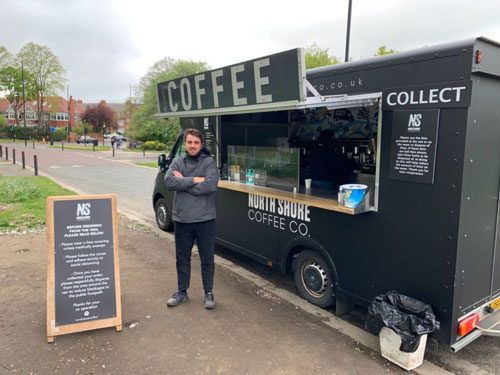
It has been lovely to see the area’s green spaces put to such good use and the arrival of the North Shore Coffee van gave a particular focus to the Little Moor area.
Larger crowds have an impact on an area so HWJRA has worked hard to try to ensure a balance between promoting the area as a great place to live and visit, whilst maintaining the character of a quiet, leafy residential suburb.
We have liaised closely with Toby, who runs North Shore Coffee, to ensure that he does everything he can to enforce social distancing and to encourage residents to dispose of litter thoughtfully.
Toby has been responsive to all requests from the Association including providing additional bins and making plans (soon to be implemented) for re-turfing areas of grass that have been worn away by people queuing at the van.
The vast majority of feedback that the Association has received about the coffee van has been positive and we are pleased that the owner has been so pro-active and responsive to our requests.
Litter
Lockdown has seen a significant increase in usage of the Little Moor by dog walkers and people meeting for drinks and picnics.
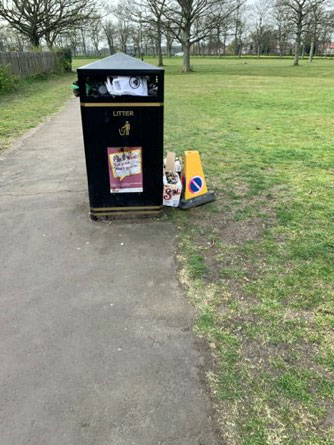
Again, while this is welcome, the amount of waste this produces has had an impact.
We have liaised with the council on several occasions to get the frequency of bin emptying on Little Moor increased and the Lending A Hand team, along with several community-spirited residents, have been out on the green spaces collecting litter left behind by less thoughtful visitors.
Trees
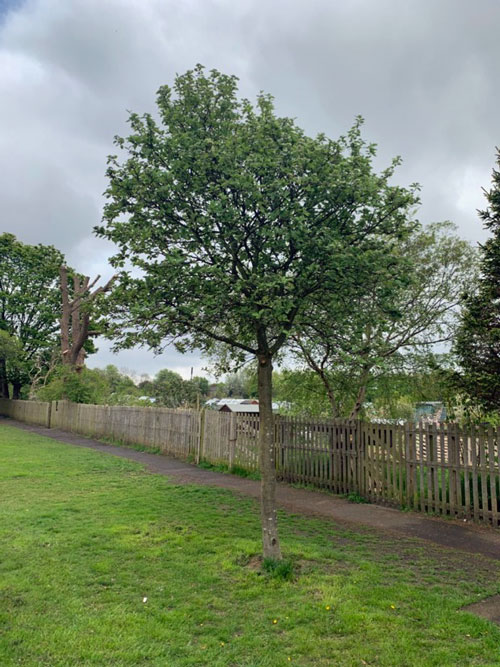
We have maintained our strong links with Mark Todd and the team at Urban Green Newcastle who are responsible for managing the trees in the area.

Mark liaises with us when any remedial work is necessary on local trees such as recent pruning work. The trees are a great asset and we have found the Urban Green team very sympathetic to requests to maintain and, where appropriate, replace trees in our area.
City Fibre
In Autumn 2020, the area was fitted out with high-speed fibre optic cable by a company called City Fibre.
Whilst the addition of high-speed fibre cable is a positive thing for the area, we were concerned about the condition some of the pavements and green spaces had been left in after the fitting had occurred.
This was particularly the case with the ill-judged positioning of the cable boxes on Little Dene which were limiting access to the footpath.
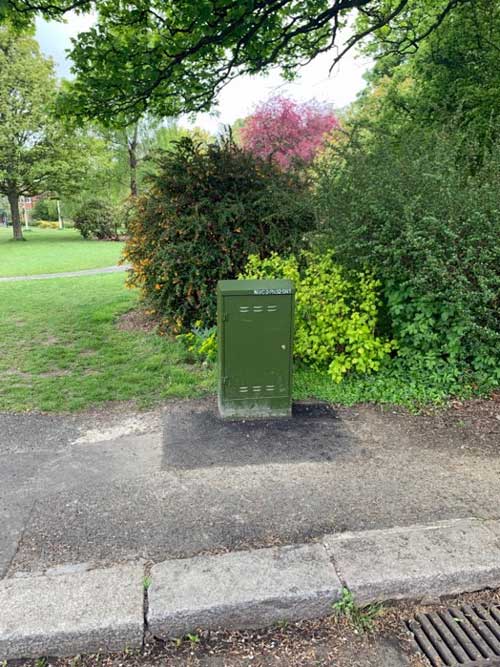 Fortunately, we found the installation team at City Fibre to be responsive to our requests for remedial work to be done and the cable boxes have now been relocated and additional work to areas of road and pavement has been implemented.
Fortunately, we found the installation team at City Fibre to be responsive to our requests for remedial work to be done and the cable boxes have now been relocated and additional work to areas of road and pavement has been implemented.
Anti social behaviour
Without doubt, the biggest issue of concern to residents over this past year has been the unwelcome and very significant increase in anti-social behaviour.
Particular “hotspots” have been around the metro station (Albury Road/Honister Avenue/Ilford Road) and on the Little Moor and its allotments.
Gangs of youths have been causing damage to property, lighting fires, threatening residents and in a couple of extreme cases there has been physical violence against residents and allotment holders.
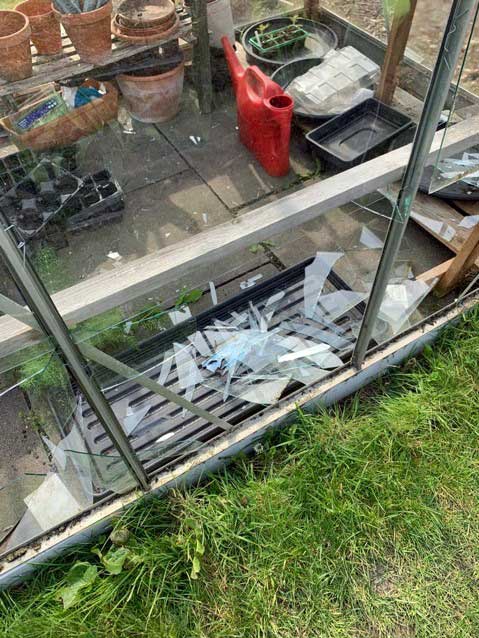
The Residents Association has good links with our community police team but as things got significantly worse in Spring 2021 we escalated matters and sought the involvement of our councillors (Henry Gallagher, Wendy Taylor and Karen Robinson), our Member of Parliament (Catherine McKinnell), our local police sergeant (Euan Faulke), the Neighbourhood Team at Newcastle City Council and (via Catherine McKinnell) the Chief Superintendent at Northumbria Police Centre Area Command (Sav Patsalos).
At time of writing (and with fingers firmly crossed) it looks like this escalation and higher-level involvement has been beneficial as the past 2-3 weeks has seen a significant increase in police presence and a reduction in the incidence of anti-social behaviour.
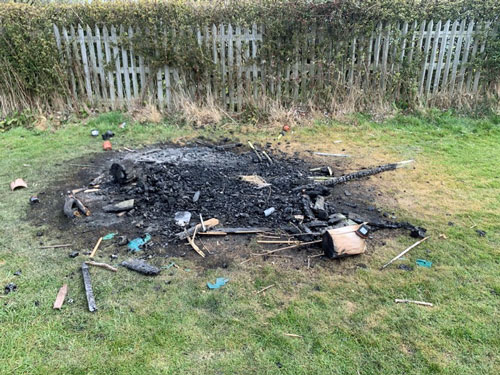
The police have made several interventions including dispersal orders, alcohol confiscation, arrests and follow-ups at local schools. We are very encouraged by this but want to ensure that this sort of activity continues and so will remain in close contact with the relevant authorities.
Local traffic and Streets for People
One area that has not progressed at all during lockdown is the Streets for People project.
Residents may recall that a lot of time was spent liaising with local people and the council to come up with some solutions to the problems of high-speed traffic on Ilford Road and Moorfield as well as excessive parking by commuters using the area as a car park.
The issue of parking has been much reduced during lockdown (though it may well reoccur once everything opens back up).
However, the issue of speeding traffic has not got any better and the Association has received several communications from residents about the increase in high-speed cars, vans and lorries in our area.
It’s disappointing that the previously promised interventions have now been postponed and that the council’s focus has been on other areas such as Jesmond and Heaton.
Whilst we understand that there will always be competing priorities in this area, we will continue to put pressure on the council to recognise the issues we have locally as they are not insignificant.
One issue that has proven controversial is the closure of several bridges during lockdown. The closest bridges to our area are Stoneyhurst Road and Castles Farm Road.
The Association has not got directly involved in the debate on either of these bridge closures as they are outside our area, however we have circulated information on the consultation and encouraged residents who feel strongly on the issue to respond to the council.
Committee 2021-22
During the past year, two committee members resigned as they moved away from the area (Katherine Shipley and Ian Cavanagh).
The following members of the committee have all agreed to stand again for 2021-22 – Fiona Bruce, Jeffrey Fox, Andrew Jackson, Dawn Dunn, John Stephenson, Cornelia Moosman.
The following people have put their names forward to serve on the committee also – Michael Hutchinson, Maureen McKenna, Victoria Nemeth.
Conclusion
It has been a very difficult year for many people, and we remain uncertain as to how long lockdown restrictions (in whatever form) will continue.
However, despite this, the Residents Association continues to function, and it has been able to ensure that, where necessary, interventions are made to safeguard and promote the local area and its residents.
Our finances remain in a sound position and our links with local authorities and stakeholders remain strong and positive.
We take great pride in the area we represent and live in and will continue to do so over the next 12 months.
Nick Moore
Chair – High West Jesmond Residents’ Association
May 2021

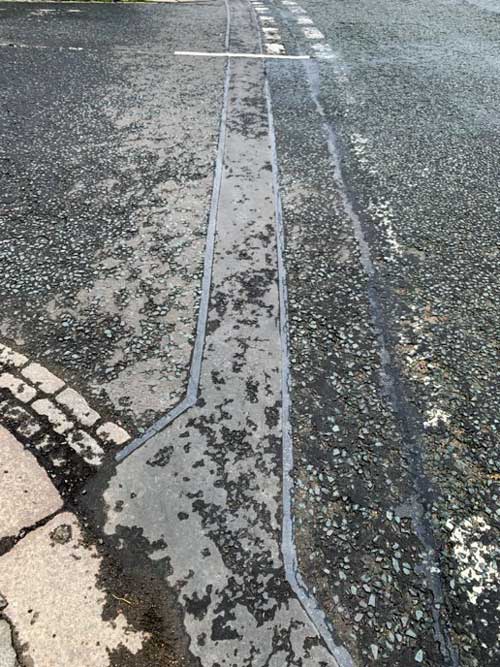

 Bridges closed included nearby Stoneyhurst Bridge, Castle Farm Road, Salters Bridge and Haldane Bridge.
Bridges closed included nearby Stoneyhurst Bridge, Castle Farm Road, Salters Bridge and Haldane Bridge.


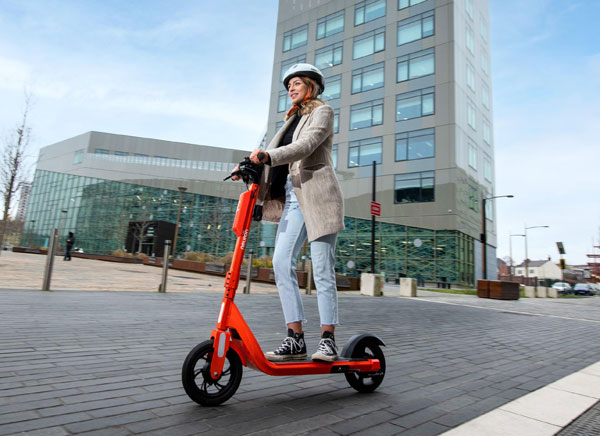 Changes to Newcastle’s e-scooter trial have been introduced in response to initial feedback.
Changes to Newcastle’s e-scooter trial have been introduced in response to initial feedback.